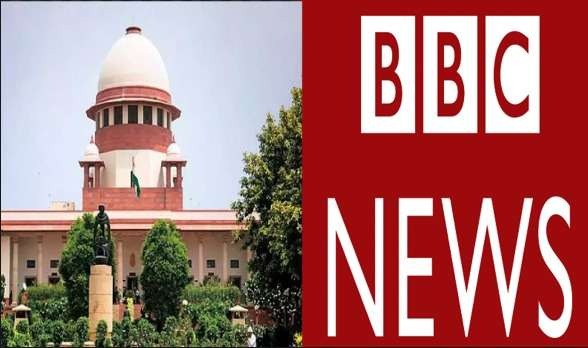
The Supreme Court on Thursday refused to pass any direction to grant urgent hearing on a PIL filed by the Hindu Sena seeking a total ban on the British Broadcasting Corporation (BBC) for airing the documentary, India: The Modi Question, about the 2002 Gujarat riots.
A bench led by CJI DY Chandrachud directed the advocate representing the petitioner to bring the matter up again tomorrow. The CJI-led Bench hears urgent mentioning only when the matter is on the mentioning list.
The Central Government has blocked it on social media and online platforms.
The petition, filed by Vishnu Gupta, President of the Hindu Sena, and one Beerendra Kumar Singh, a farmer, sought a total ban on the BBC and the documentary, as well as an investigation into the BBC’s alleged anti-India reporting.
The petition stated that, “The fact that India’s overall growth has accelerated since 2014 under PM Narendra Modi’s leadership has not been digested by the anti-India lobby or the media, particularly the BBC. Therefore, the BBC has been biased against India and the Indian government.”
It was contended that the Supreme Court had put an end to the cases relating to the Gujarat violence of 2002 because no evidence was found to show that the attacks were inspired or instigated by any minister of the state of Gujarat.
The plea added, “It is worth noting that the Nanavati Commission Report on 2020 Gujarat Violence concluded categorically that there was no evidence linking any Minister of the Gujarat Government to the violence. Furthermore, it was submitted that in 2022, this Hon’ble Court rejected an appeal against the Special Investigation Team’s (SIT) clean chit. This Hon’ble Court accepted the SIT report and held that the plea was an attempt to keep the pot boiling.”
Therefore, it was contended that the documentary film implicating Prime Minister Narendra Modi was not reflective of anti-Narendra Modi propaganda to tarnish his image, but also anti-Hinduism propaganda by the BBC to destroy India’s social fabric.




